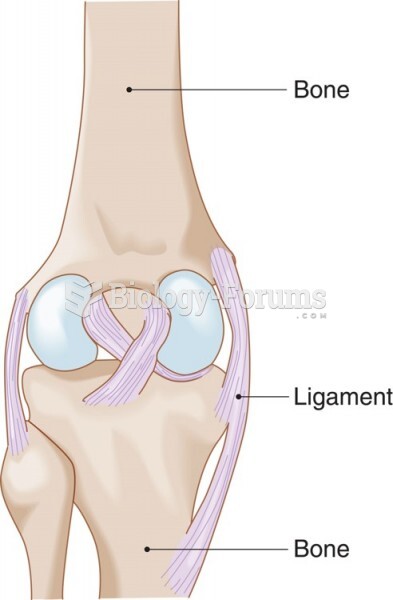|
|
|
Illicit drug use costs the United States approximately $181 billion every year.
Approximately 70% of expectant mothers report experiencing some symptoms of morning sickness during the first trimester of pregnancy.
If you use artificial sweeteners, such as cyclamates, your eyes may be more sensitive to light. Other factors that will make your eyes more sensitive to light include use of antibiotics, oral contraceptives, hypertension medications, diuretics, and antidiabetic medications.
Many people have small pouches in their colons that bulge outward through weak spots. Each pouch is called a diverticulum. About 10% of Americans older than age 40 years have diverticulosis, which, when the pouches become infected or inflamed, is called diverticulitis. The main cause of diverticular disease is a low-fiber diet.
The shortest mature adult human of whom there is independent evidence was Gul Mohammed in India. In 1990, he was measured in New Delhi and stood 22.5 inches tall.
 A backpressure tool can be made by using an oxygen sensor housing and using epoxy or braze to hold ...
A backpressure tool can be made by using an oxygen sensor housing and using epoxy or braze to hold ...
 Apply draining stroke to forearm. Hold forearm off of the table with one hand. With the other hand, ...
Apply draining stroke to forearm. Hold forearm off of the table with one hand. With the other hand, ...





